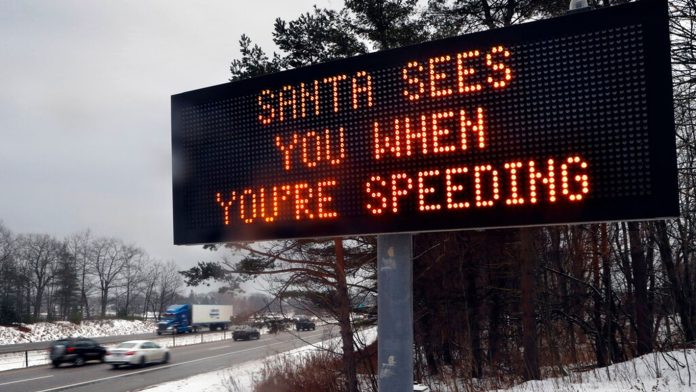Get ready to bid farewell to the chuckles on the road, thanks to Federal Authorities, as the days of amusing and whimsical messages gracing electronic signs along highways and freeways in the United States are numbered.
The U.S. Federal Highway Administration has set a two-year timeline for states to adopt the changes outlined in its recent 1,100-page manual, which delineates regulations for signs and other traffic control devices. In a move to enhance safety and minimize distractions, the administration has mandated that overhead electronic signs featuring ambiguous meanings, references to pop culture, or humor will face a ban in 2026.
Emphasizing the need for signs to be “simple, direct, brief, legible, and clear,” the agency contends that electronic displays should strictly convey crucial information, such as warnings about crashes, adverse weather conditions, and traffic delays. Reminders about seatbelts and cautions regarding the perils of speeding or driving under the influence remain permissible.
This directive marks the end of an era for signs that brought a touch of humor to the daily commute. Notable examples include Massachusetts’ “Use Yah Blinkah,” Ohio’s “Visiting in-laws? Slow down, get there late,” Pennsylvania’s “Don’t drive Star Spangled Hammered,” New Jersey’s “Hocus pocus, drive with focus,” and Arizona’s “Hands on the wheel, not your meal.”
Arizona, renowned for its more than 300 electronic signs above highways, had been running an annual contest for the past seven years to discover the wittiest and most creative messages. With over 3,700 entries submitted last year, winning entries included “Seatbelts always pass a vibe check” and “I’m just a sign asking drivers to use turn signals.”

CES 2024: U.S. Tech Industry Revenue to Rise 2.8% in 2024
While some, like Arizona state Rep. David Cook, appreciate the humor in these messages, there’s discontent brewing over the federal intervention. Cook, a Republican from Globe, expressed bewilderment at the federal government’s involvement, questioning the need for external oversight in state affairs. According to him, this is a glaring example of the federal government neglecting its core responsibilities.

